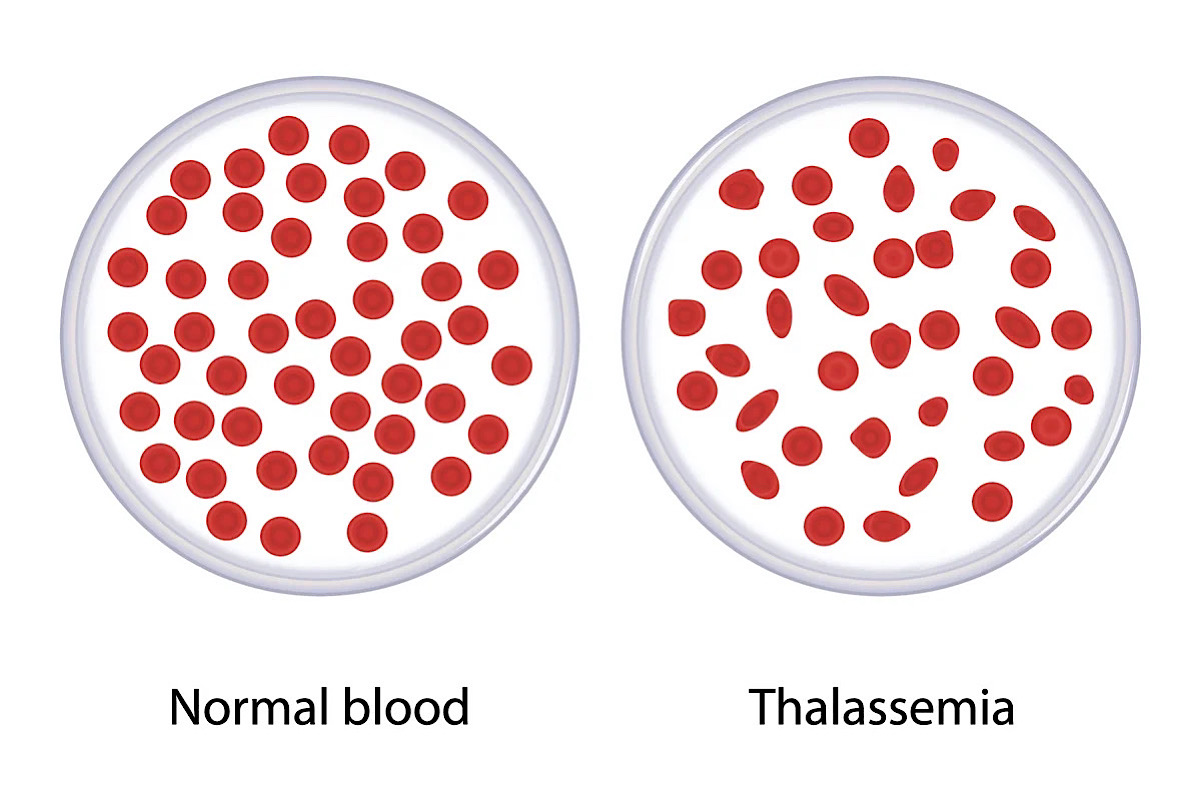The 8th of May marked World Thalassemia Day. A genetic blood disorder, thalassemia, poses a significant challenge for affected individuals and their families. It can happen only when both parents are carriers of the thalassemia trait. The chances of being born with thalassemia major, a severe form of the condition, are high, thereby placing a tremendous burden on the health and finances of families, as affected individuals require lifelong medical care, including blood transfusions and medication.
The emotional toll of thalassemia is equally significant, as parents grapple with the distress of seeing their child undergo regular medical procedures and manage the challenges associated with the condition. For children with thalassemia, the experience of undergoing frequent blood transfusions and medical treatments can be traumatic, impacting their mental well-being and quality of life.
Advertisement
Dr Soumallya Chattopadhyay said, “In thalassemia, the body’s inability to produce adequate, perfectly functional haemoglobin is the problem. Haemoglobin is the basic component of red blood cells in our body. It helps us in the transportation of oxygen in our cells. As a result of haemoglobin deficiency, the patient has to suffer from a condition called anaemia. In anaemia, the body cells don’t get enough oxygen, and for the same reason, patients become fatigued and irritable. Other corresponding symptoms, like dizziness, a quick heartbeat, muscle cramps, headaches, etc., may also be present. The problem may be less or more”.
According to him, homoeopathy, too, can be effective in the management of thalassemia. “We can increase the quality of haemoglobin through homoeopathic treatment,” he says. “In more complex cases like thalassemia major, where blood transfusion is inevitable, we can significantly reduce the frequency of the hazardous procedure through homoeopathic treatment in our present clinical setup. Patients with thalassemia are usually immune-compromised. Through homoeopathy, we can effectively reduce the incidence of infection as well.”
World Thalassemia Day, observed annually on 8 May, serves as a crucial opportunity to raise awareness about this preventable genetic disease. Organisations and individuals are dedicated to educating communities about thalassemia, promoting blood screening and counselling services, and advocating for access to comprehensive medical care for affected individuals.
One such individual is Subhojit Roy [in pic], an entrepreneur and social volunteer who, for the past 30 years, has been raising funds for the treatment of thalassaemia patients as well as educating common people about the need to test blood before marriage, particularly the youth. Subhojit Roy’s efforts reflect how individual initiatives can have a significant impact on public health outcomes. He says, “Individual consciousness has to grow that this disease is entirely patients, and by just doing a blood test for carrier detection, we can completely eradicate the disease. Many countries have zero thalassaemia, and that is why we have launched a campaign, Thalassaemia Free India, and we are reaching out to all elected representatives of India to sensitise their electorate about thalassaemia.
The writer is an independent contributor











